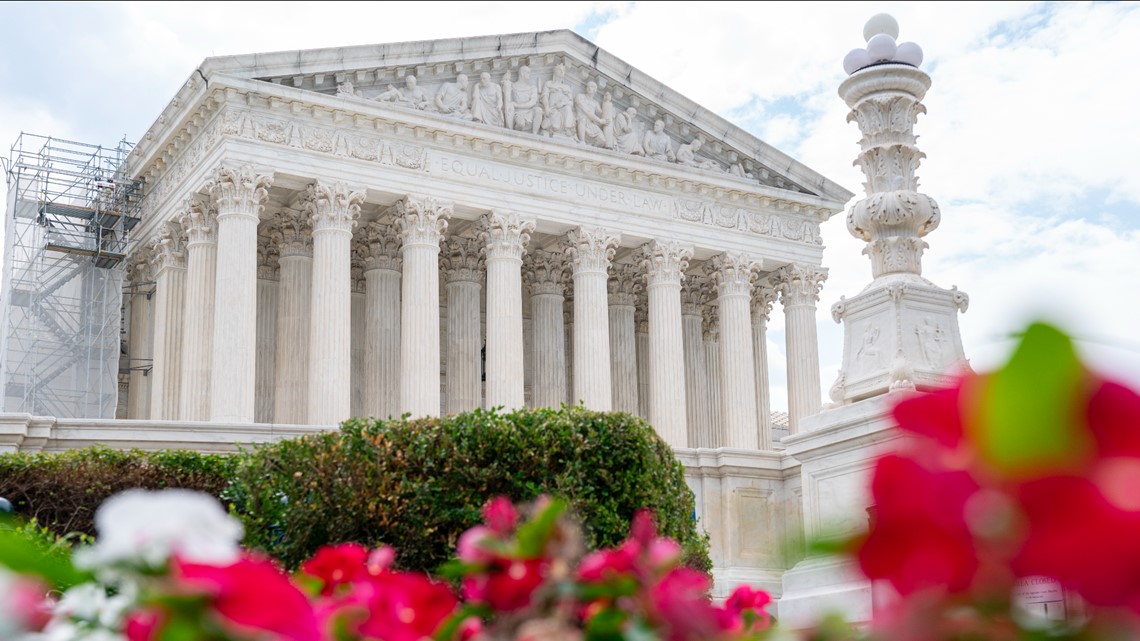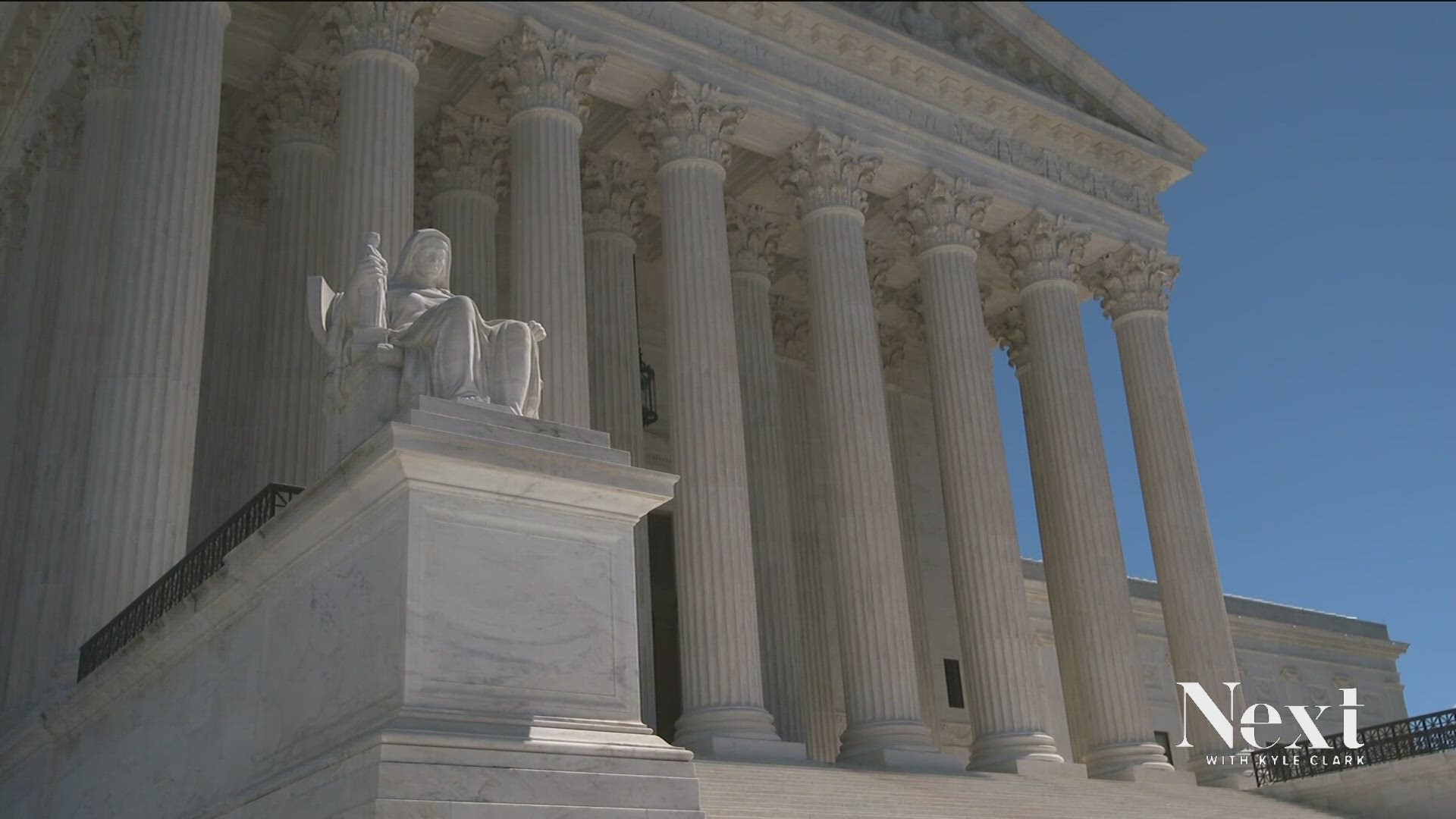WASHINGTON, D.C., USA — The Supreme Court ruled Tuesday to make it more difficult to convict a person of making a violent threat, including against the president or other elected officials.
The Biden administration had warned that the internet and social media have expanded the number and kinds of threats in recent years, including online harassment, intimidation and stalking. And they warned the case could affect the ability to prosecute threats against public officials, which have increased in recent years.
The high court was ruling in a case that involves a man who was sentenced to more than four years in prison in Colorado for sending threatening Facebook messages. The man’s lawyers had argued that he suffers from mental illness and never intended his messages to be threatening.
The question for the court was whether prosecutors must show that a person being prosecuted for making a threat knew their behavior was threatening or whether prosecutors just have to prove that a reasonable person would see it as threatening.
Justice Elena Kagan wrote for a majority of the court that prosecutors have to show that “the defendant had some subjective understanding of the threatening nature of his statements.”
“The State must show that the defendant consciously disregarded a substantial risk that his communications would be viewed as threatening violence,” she said.
Seven justices agreed with the outcome. Two conservative justices, Clarence Thomas and Amy Coney Barrett, dissented.
The Biden administration had been among those arguing for the lower “reasonable person” standard.
“Threats of violence against public officials in particular have proliferated in recent years, including threats against Members of Congress, judges, local officials, and election workers,” the Biden administration had noted, saying the case could affect prosecutions in those cases.


Speech of all kinds is generally protected by the free speech clause in the Constitution’s First Amendment, but so-called “true threats” are an exception.
The specific case before the justices involved Billy Counterman. He contacted a musician through Facebook in 2010 to ask her whether she would perform in a benefit concert he said he was organizing. The woman, Coles Whalen, responded but nothing ever came of it.
Whalen forgot about the exchange, but four years later, Counterman began sending her Facebook messages again. He ultimately sent hundreds of messages, including ones that were rambling and delusional and others that were quotes and memes. Whalen never responded and blocked Counterman several times, but he would just create a new account and continue sending messages.
Counterman believed Whalen was responding through other websites and Facebook pages. Whalen became concerned after Counterman’s messages — including “You’re not being good for human relations. Die. Don’t need you.” and “Was that you in the white Jeep?” — suggested he was following her in person. Eventually, the messages were reported to law enforcement and Counterman was arrested. He was convicted and lost an appeal.
The justices' ruling is a victory for Counterman and sends his case back to lower courts for another look. In a statement, his attorney John Elwood said that they are “gratified that the Supreme Court agreed with Billy Counterman that the First Amendment requires proof of mental state before it can imprison a person for statements that are perceived as threatening.”
Colorado Attorney General Phil Weiser, whose office prosecuted Counterman, said in a statement that the decision will make it “more difficult to stop stalkers from tormenting their victims."
“In today’s ruling, the Court creates a loophole for delusional and devious stalkers and misapprehends the very nature of threats faced by stalking victims," Weiser said. "In short, this decision will make it more likely that victims of threats— mostly women — will live in fear and will be discouraged from speaking out against their stalkers, believing there is little they can do to hold those stalkers accountable."
The case is Counterman v. Colorado, 22-138.
SUGGESTED VIDEOS: Politics
> Top stories curated daily just for you! Sign up for the 9NEWSLETTER to get can’t-miss stories, Next and Broncos content, weather and more delivered right to your inbox.
MORE WAYS TO GET 9NEWS
Subscribe to our daily 9NEWSLETTER
Download the 9NEWS APP
iTunes: http://on9news.tv/itunes
Google Play: http://on9news.tv/1lWnC5n
HOW TO ADD THE 9NEWS APP TO YOUR STREAMING DEVICE
ROKU: add the channel from the ROKU store or by searching for KUSA.
For both Apple TV and Fire TV, search for "9news" to find the free app to add to your account. Another option for Fire TV is to have the app delivered directly to your Fire TV through Amazon.

